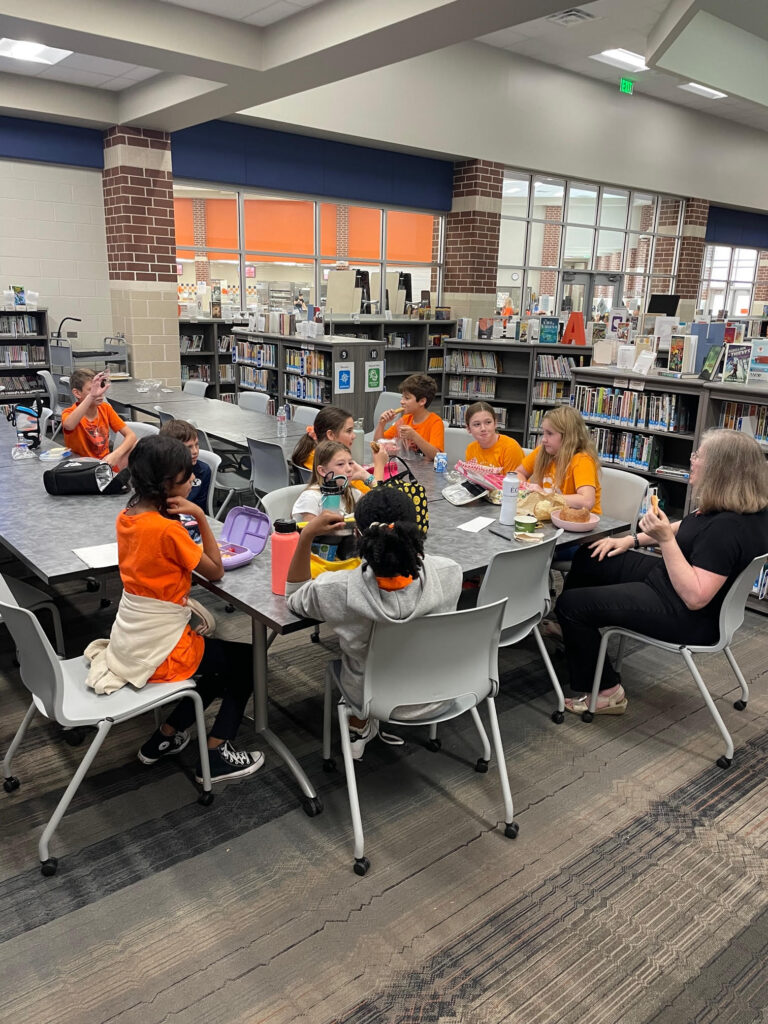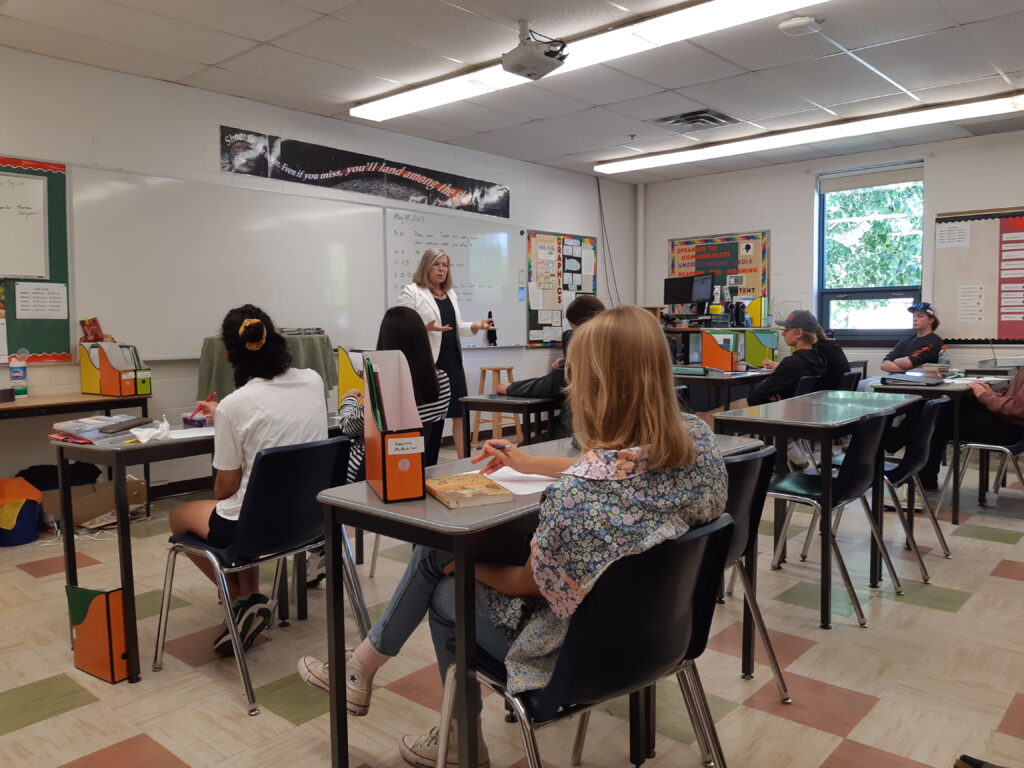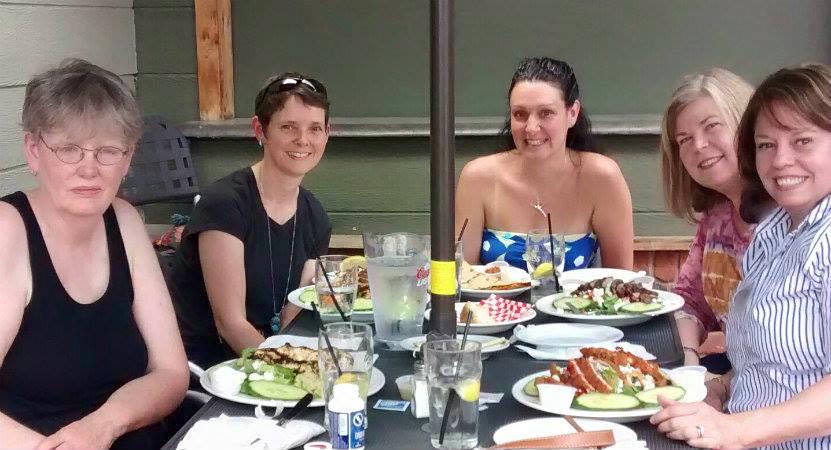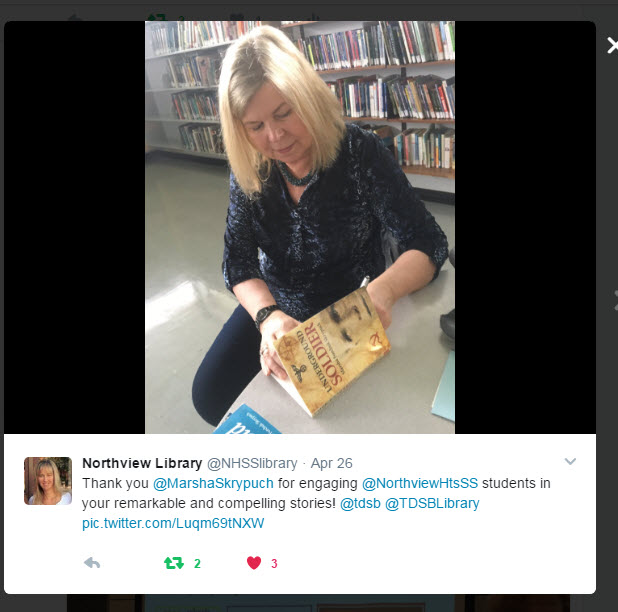These are notes from my talk for the SCBWI Canada East The Art of Story 2017 conference in Montreal:
Author visits are an excellent way to augment income, but how can you carve your own niche in this competitive market?
Once you get a yes, what happens then? And how do you create the content of the visit itself?
Is there a way to transform a single request into more?
How do you become a dream visiting author?
What is an author visit?
Venues for these?
Who books?
And now the meat:
How do you contact these people?
don’t look needy.
Start small, start local – clubs, organizations, TL, literacy
Figure out how your books solve their problems.
Transforming from a non-presenter to a presenter:
- do a book launch
- DONATE a presentation
- Raise money for a cause
- Book store presentation that’s offered to your target market.
Take pictures of the above and blast it around social media
During the above gigs, make sure people take pictures of you presenting. These pictures should go up on your website, get tweeted, blogged and facebooked around.
There is an added bonus to doing the above – you will intuitively and organically find out what it is that you should be talking about in your presentations and for each of us it’s something different.
Now, join the Writers’ Union. They offer subsidies for readings and they also have a listing of authors who do presentations. This makes you look professional.
Once you’ve done the above for awhile, you’ll notice requests coming to you. But be patient. It can take months or years. You need a critical mass of books, and you need people buzzing about you.
And now comes the trickiest part. The request for a FREE visit.
Everyone will want a freebie. All librarians and teachers will tell you that there is no budget, that they’d love to pay you but they cannot afford it. Don’t fall for it and don’t give them a freebie. If you do this, you will not get paid visits. If you’ve joined the Writers’ Union, you have an excuse. You can tell them that your union strictly forbids you doing free presentations. You can compare it to their profession. They wouldn’t teach for free no matter how much they’d love to, right?
It’s better to turn down a gig than to do it for free. They get what they pay for. If you do a freebie, they won’t prepare the same and they will not value you. Worse, word will get around that you do freebies. Freebies are the kiss of death for an author.
Confirming a paid visit:
Once you’ve settled on a date and time and you’ve talked about the pricing, send an invoice by email in a pdf attachment with the due date as the date of the presentation. You should be handed the cheque as you’re leaving the school. If you’re a Writers’ Union member, do send them a link to the subsidy and urge them to quickly apply. You can invoice them two ways – one subsidized, the other unsubsized – then tell them to ignore the one that doesn’t apply.
About a week before the presentation, email again to make sure that everything is on track.
More information about the content of your presentation:
Your presentation is basically about filling their needs with your niche topics.
- your presentation is NOT about selling books or talking about how great you are.
- You are presenting HOPE.
- No matter what the topic or who you are, it’s about inspiring the audience, not bragging about you.
- Many people have always wanted to write a book, or find out something really interesting and there you are, the embodiment of that dream. Your talk should be about your audience – ie – find yourself in them.
- How? Ask questions. Tell embarrassing stories about yourself, and then relate that to your books.
- Show your audience that the difference between you and them is overcoming challenges, practice and time and stick-to-itness, not intelligence or privilege.
Your presentation should be flexible, made up of modular parts that can be presented in various orders and sometimes left out altogether. When a teacher or librarian contacts you, you want to know the grade level, the topic they’re interested it, and the size of the audience. Ask if there’s a particular theme that they’d like emphasized and then work it in.
Leave lots of room for white space – questions from the audience.
While you can certainly bring media, don’t depend on it. The problem with power point and other devices is you have less of a chance to read your audience because you’re interacting with the hardware instead. Think of your presentation as a conversation with your audience.
One thing I like to do is make an aisle down the middle of the room. That way I can pace and make eye contact. Most importantly, I can get to the kids in the back row who have the spitballs.
Limit readings. During an author visit you don’t HAVE to read from one of your books. You can story-tell about them instead. If you do read, choose a very short punchy passage. Don’t read again unless the audience begs you to.
When you do a visit, you cannot watch the clock, so ask a teacher to watch the time for you and let you know when you have 5 minutes left. Those last five minutes are perfect for Q&A.
How do you deal with stonewall silence? This will happen from time to time. One sure way to get people to talk is to ask questions. An example, who here likes writing? Then give some quick and amusing writing tips. Another one: ask your audience how long it takes THEM to edit a story they’ve written. Then tell them your process. The teachers will love you for this.
Be prepared for the unexpected, like presenting WWII to babies, or having a leak in the ceiling and water pouring down upon you as you present. Having a student throw a chair at another student or fart loudly as you’re reading a moving scene. Don’t ever get angry. Usually, just pausing and pleasantly waiting for the teacher to handle it is all that’s required.
Is there a way to transform a single request into more?
Your pricing should encourage the kinds of bookings you want. For example, if all you want is a single booking a day, then just offer that on your Author Visit page. If you love doing full days but hate all the travel for a single visit, price a single visit on the high side and a full day economically. If you’re booked for just one or two sessions, ask the teacher if she’d like to share with a neighbouring school and offer her a discount or perk for doing so.
At the end of your visit, ask the TL to spread the word about you to her colleagues.
If you’re just starting out, a single session should be about $200.
The bulk of Canadian visits take place in the GTA. Sad but true. This is also where the bulk of authors live. If you want to break into this market, consider incorporating your travel costs into the cost of the visit. For example, it’s more attractive to offer a full day for $1000 than a full day for $800 plus travel. Or charge a flat fee for gas rather than per km.
Another way is to get a grant from some organization that will offset visit costs. For example, one writer got a grant from Greyhound and that paid for her travel. I’ve got a grant from Internment Canada for specific topic presentations. There are tons of foundations and organizations that would love to have spokespeople for their issues and if you’ve written a book about it, you already know your own organizations. I only offer my grant to venues that have already booked me for a part day of presentations.
How do you become a dream visiting author?
A dream author is one who can cover an entire elementary school in the course of a single day for approximately $1000 + travel and HST if applicable. Schools have a mandate to bring programming to all students. How can you cover an entire school? For JK to grade 2, offer two 30 minute half sessions for the price of a full session. You need to have material that’s geared to all grades and I don’t mean talking about your YA to the grade 4s. The dream visiting author has published a vast array of books and so can entertain any grade level. If you’ve got a bit of a gap in your array, offer a lunchtime writing workshop or a meet-the-author informal Q&A over lunch with select avid student writers.
If you can’t cover a whole school in a single day, figure out what you can offer what others can’t. It’s all about finding that niche.
A dream author arrives on time.
A dream author emails an invoice at least two weeks in advance.
A dream author advises the teacher or librarian of any grants or subsidies available.
A dream author finds out which door to enter and where to park ahead of time, or if taking public transit, figures it all out ahead of time.
A dream author always brings something as a gift.
This can be bookmarks,
a book for the library,
links to free downloadable teacher guides,
a cup of coffee for the librarian,
a 15 minute drop-in to JKs
or sticking around for an extra ten minutes at the end to sign library copies of your books
or to graciously meet with that parent who is an aspiring author.
Illustrators can do a demo and then donate the artwork to the venue
A dream author is flexible and can change a presentation at a moment’s notice when the audience suddenly changes.
A dream author has a recent book, and likely has a number of books out.
Brand new authors are less likely to get bookings unless there’s something very buzzy about them
Do awards help? Yes and no
Age and sex matters — unfortunate but true. So try to be tall, young and male.




